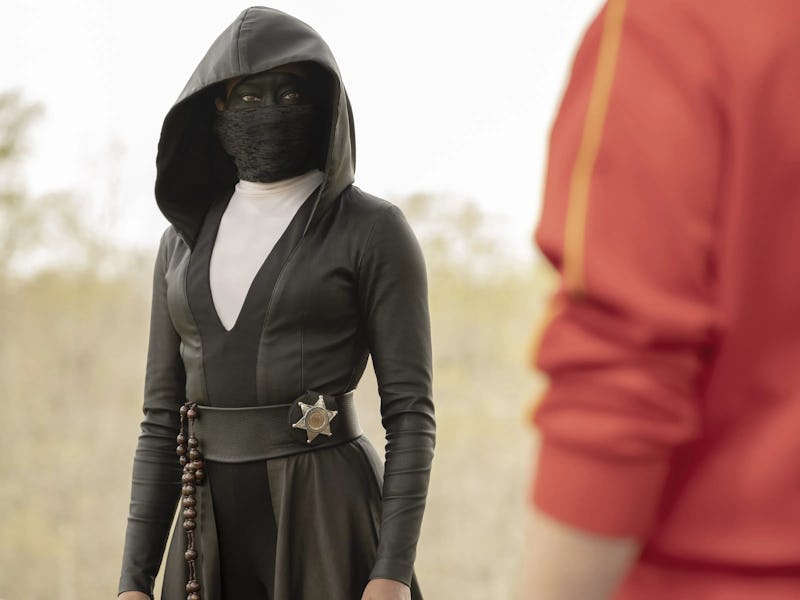HBO's Watchmen Remains Shocking and Remarkably Ambitious
A history lesson and a musical number, together at last.

It’s not uncommon for a series to begin with a cold open, one that reveals a key plot point before the main character is introduced. Crime procedurals, for example, often start with the crime itself before we meet the people who will solve it. Five years ago today, however, one of the most interesting and divisive superhero series took this technique a step further by showing multiple cold opens, including one that shed light on an oft-forgotten historical event.
It all led to a familiar dystopian world that didn’t attempt to disrupt its source material, one of the most famous superhero stories ever. Instead, it told its own story, beginning with a shocking reveal that set a deadly tone.
The first scene of Damon Lindelof’s Watchmen series is a silent movie showing “Bass Reeves, Black Marshal of Oklahoma” (if that name sounds familiar for reasons beyond history books, he was the basis of a 2021 miniseries). A young boy is watching as his mom plays the piano soundtrack, but the two are forced to flee because of the havoc outside: we’re on Black Wall Street in Tulsa, Oklahoma, on the night of the 1921 race riot. The boy escapes a fire and finds an infant he carries to safety.
The scene then changes to a traffic stop by a masked police officer that ends with a shootout, and then it changes again to a community production of Oklahoma! It’s only then that we meet our main characters: Angela Abar, aka Sister Night (Regina King), and Judd Crawford (Don Johnson), Tulsa’s Chief of Police.
It’s a perfect example of Watchmen’s ambition. The series shone a light on countless topics, from systemic racism to police brutality and even the use of superheroes as entertainment, all within the first 20 minutes.
Watchmen depicts Tulsa’s Black Wall Street massacre in brutal detail.
Just as varied is the worldbuilding. In a masterclass of show, don’t tell, we learn what’s going on in these United States 34 years after the Watchmen graphic novel concluded. Angela Abar grew up in American-annexed Vietnam, Robert Redford is still president, Dr. Manhattan is still on Mars, and the squid monsters that destroyed New York City are now just an occasional nuisance.
The more immediate concern is the Seventh Kavalry, a white supremacist group that’s taken to Rorschach’s mask the way the modern-day racists have fallen in love with the Punisher logo. As her masked alter ego, Angela works to defeat them in conjunction with the Tulsa Police and other vigilantes.
It should be business as usual, and Judd and Angela manage to down a slew of Kavalry members before going home to a nice dinner party with their families. But that’s interrupted after Judd leaves and Angela finds him hanging from a tree.
Don Johnson is introduced as Chief of Police Judd Crawford, but don’t get too attached.
It’s a shocking reveal, as a character we all thought would be a co-protagonist is now just another casualty. But the twist was actually hiding in plain sight: the episode title, “It’s Summer and We’re Running Out of Ice,” is a line from an Oklahoma! song called “Pore Judd is Daid,” which plays over the reveal.
There are references to the original Watchmen here, but they’re all sly, like the egg yolks Angela separates into a familiar yellow smiley face, or an ad for American Hero Story: Minutemen, a reference to what Ryan Murphy’s real-life TV empire would look like if it had been built in Alan Moore’s world. It all sets the tone for the series, a “remix” with new characters and big ideas that keeps a lot of plates spinning. Five years on, its twists still land, and its themes are still achingly relevant.